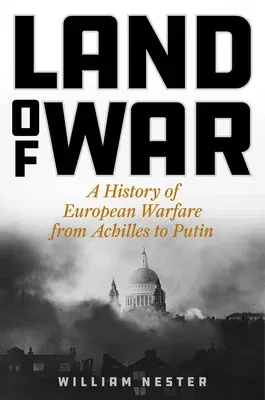War in Europe began with the first human migrants. Rival bands fought
for thousands of years before the Greeks and Romans began writing about
their military history, first as legend--for instance, the hero Achilles
battling the Trojans--and then as fact. War developed from sticks and
stones to bronze, iron, and steel, including armor and edged weapons.
Then came gunpowder, guns, and cannons, which eventually replaced edged
weapons. Finally, in the nineteenth and twentieth centuries, technology
exploded: railroads, steamships, telegraphs, machine guns, automobiles,
airplanes, and tanks enabled European states to muster, equip, arm,
transport, and command more men than ever before, with more firepower
than ever before. In the past seventy-five years, atomic weapons changed
the military landscape of Europe--as have the internet and cyber
warfare. In this colorful new telling of European warfare--and indeed
European history through the continent's all too numerous wars and
conflicts--William Nester describes millennia of armed conflict. He
covers the "greatest hits" of military history both ancient and current:
Thermopylae, the Peloponnesian War, the wars of the Roman Empire across
the continent, the Battle of Hastings, the Crusades, Agincourt,
Waterloo, Napoleon and Wellington, the Somme, the Spanish Civil War,
Stalingrad and Normandy, Churchill, Hitler, and Stalin, Bosnia, and up
through Putin's attempts to redraw the map of Europe. Nester highlights
how warfare has been deeply entwined with European statesmanship and
undergirds modern institutions such as NATO and the European Union.
Europe's sense of itself is bound up in its military history. Land of
War is an epic odyssey from Europe's mythic origins through its latest
violent conflicts.

